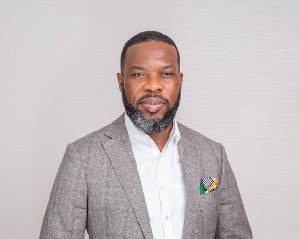Business News of Monday, 2 June 2025
Source: www.ghanawebbers.com
When aid shrinks, execution must rise
In March, the US withdrew from the Just Energy Transition Partnership. It had pledged over $1.5 billion in grants and funding. Even if these cuts are temporary, the damage may last. Recovering lost momentum could take years and delay critical projects.
If this decline is permanent, the implications are serious. African governments must act now to secure their development paths. As contributions from development partners shrink, governments will need to finance more projects themselves. This reality is challenging but offers a chance to rethink public investment.
Many African economies face a paradox: increased infrastructure investment does not always mean timely delivery. Historically, about 10% of project investments are wasted due to poor performance. The global construction market is projected to reach $17.05 trillion this year. Poor project performance could cost it over $1 trillion.
In Africa, high public debt pressures national budgets and limits fiscal space. Improving efficiency in infrastructure delivery is essential now more than ever. If funding is tightening, better management of resources is crucial.
This means focusing on how projects are delivered within fiscal policy. Professionalizing project management can help stretch limited budgets effectively. However, challenges remain for many governments.
They often face institutional constraints and limited technical capacity. High turnover in public sector roles complicates matters further. Long-term investment in skills development is necessary.
Even a 10% improvement in project delivery efficiency could save billions. These savings could support critical sectors like education and healthcare without raising taxes or debt levels. Stronger project management leads to better outcomes for citizens.
There’s also a political benefit to effective infrastructure projects. Visible projects build public trust and investor confidence while creating jobs. With a growing youth population, infrastructure should be seen as a tool for inclusive growth.
Africa cannot afford inefficiency today; every failure impacts future generations negatively. National treasuries must view project management as an economic asset now more than ever. Government ministries should work together to establish qualified delivery units.
However, embedding rigorous project management will take time and effort across ministries. This medium-term reform must start now for future investments to succeed effectively. Multilateral lenders like the ADF should require strong project management practices for financing.
Africa's infrastructure agenda is vital for progress but needs strong national leadership too. Success will depend on prioritizing competence and ensuring effective execution.











